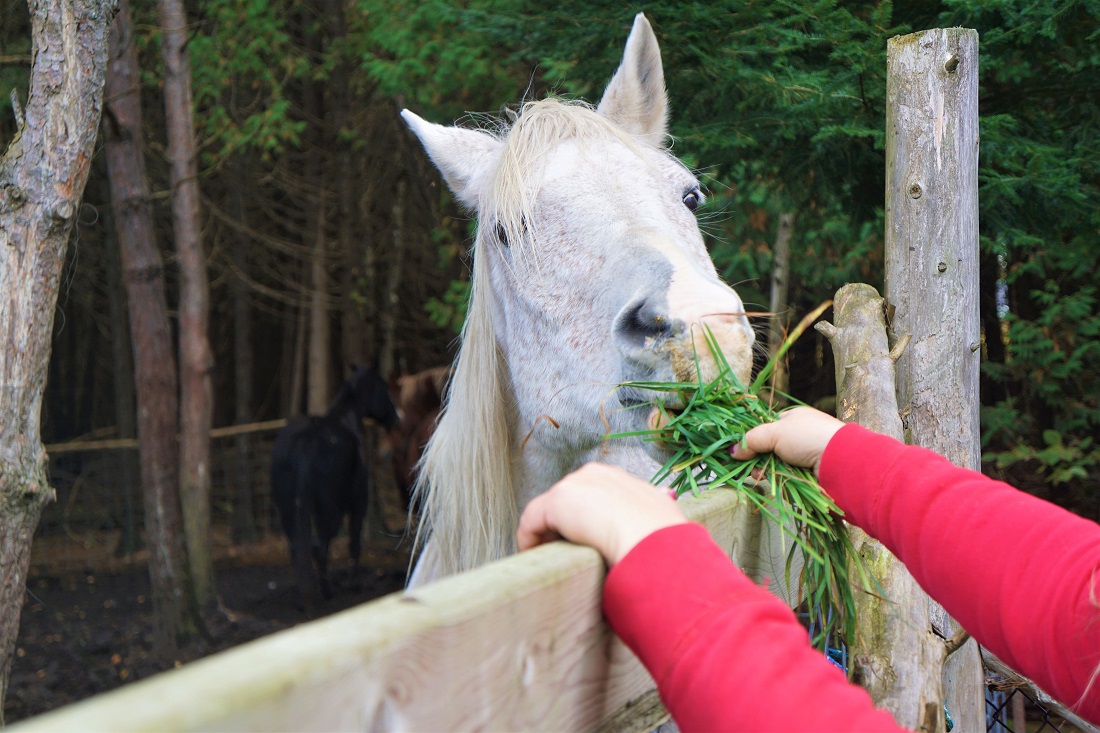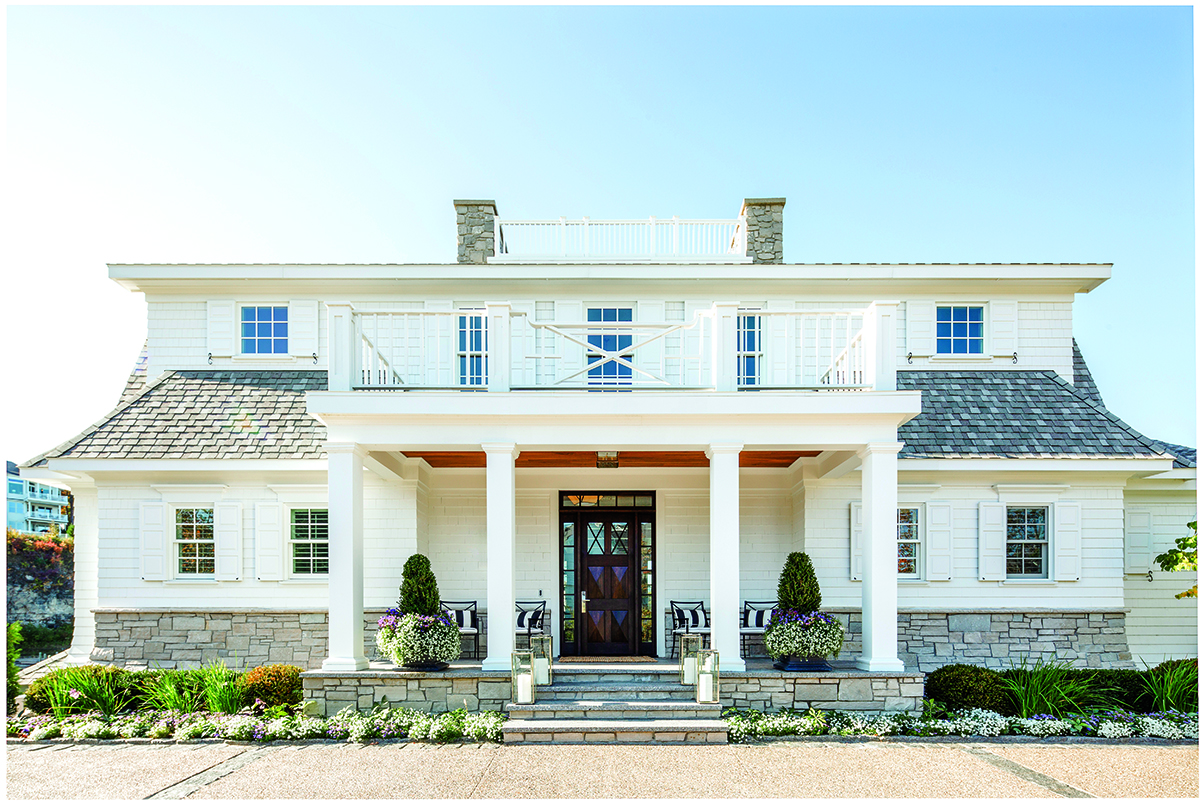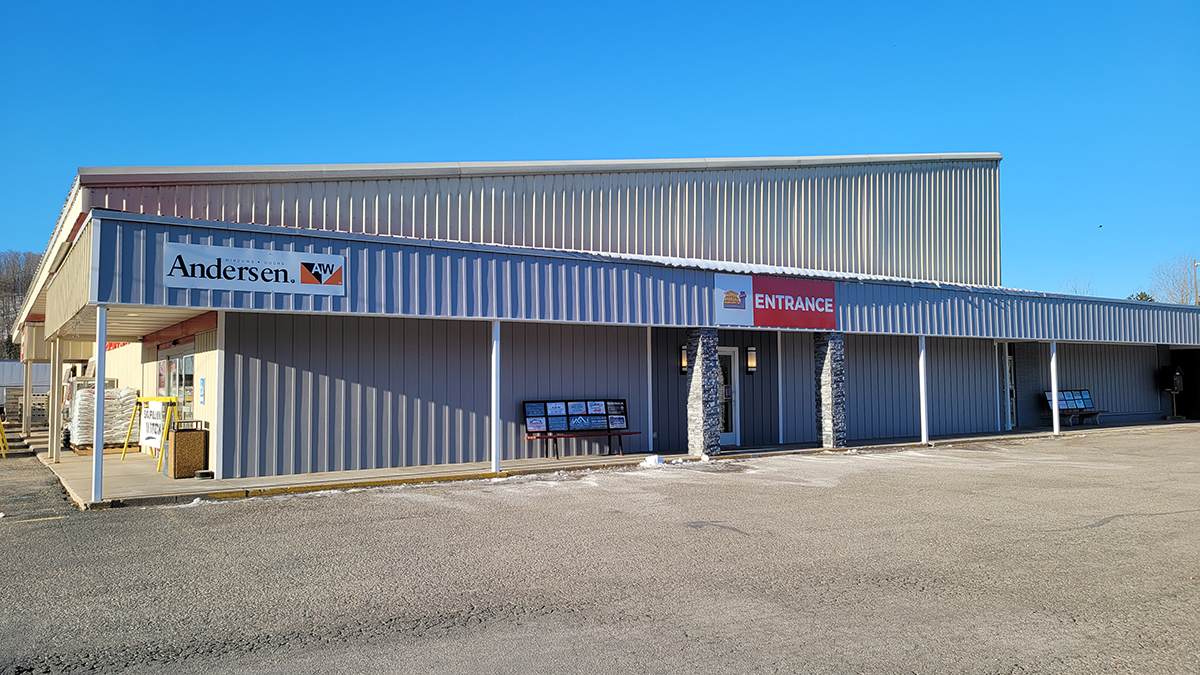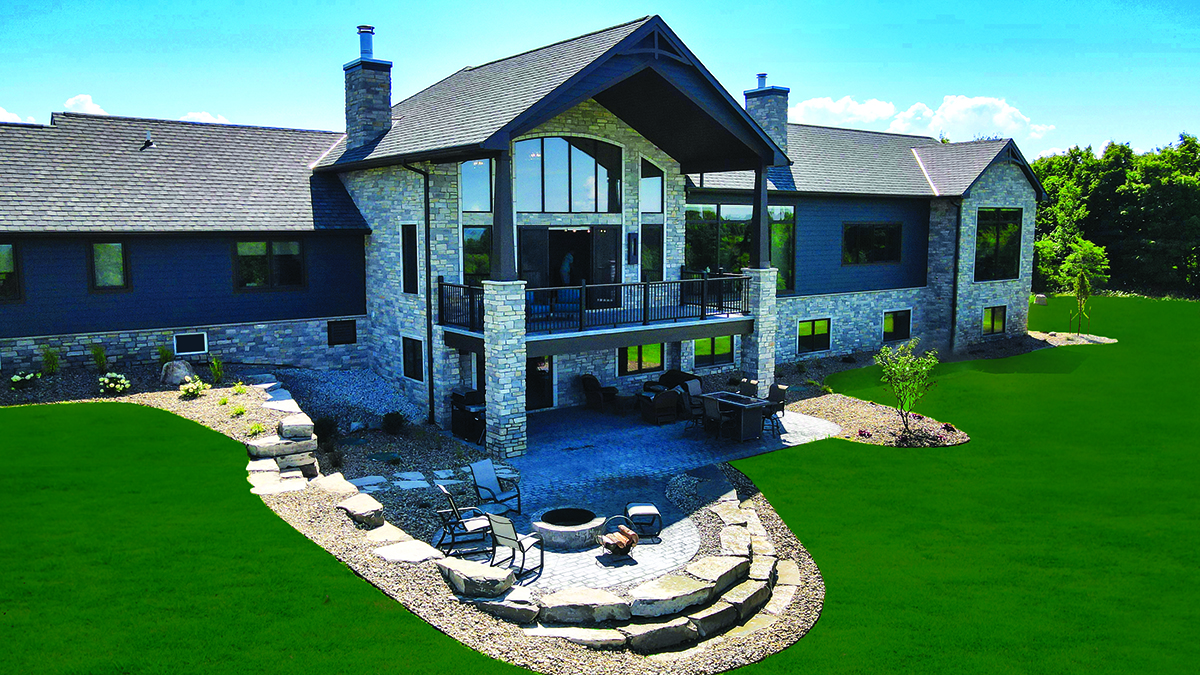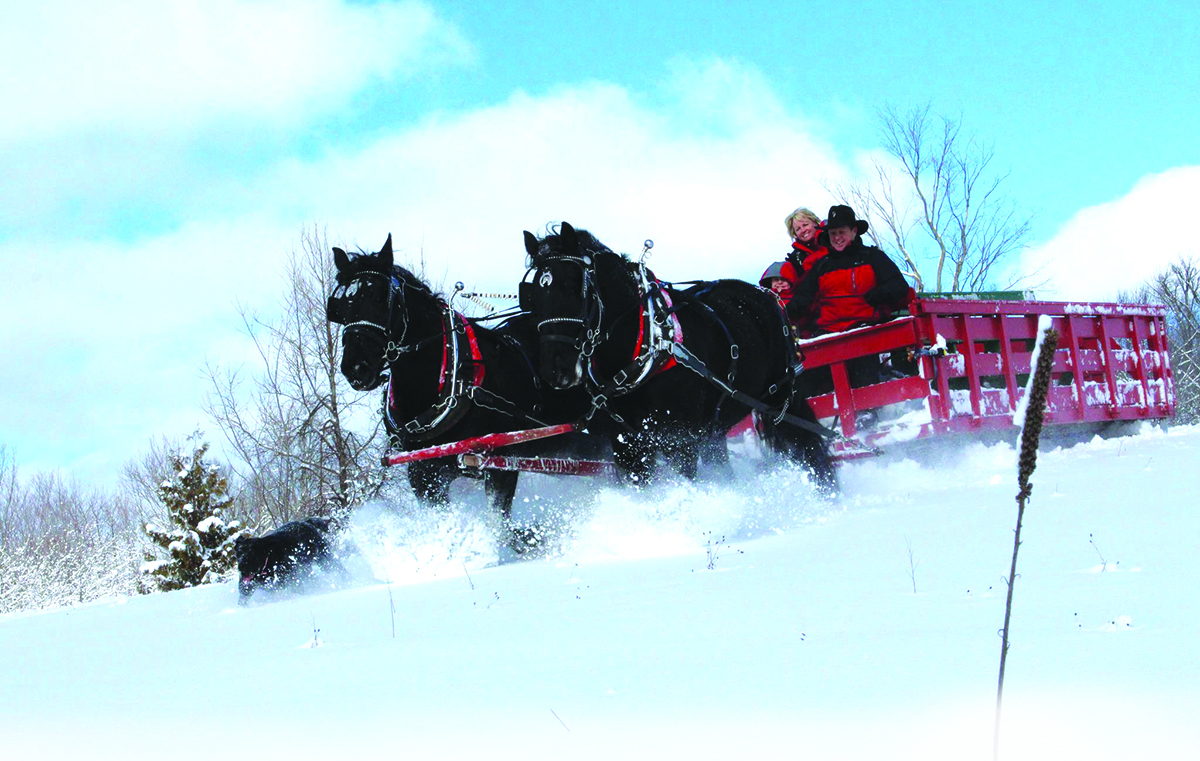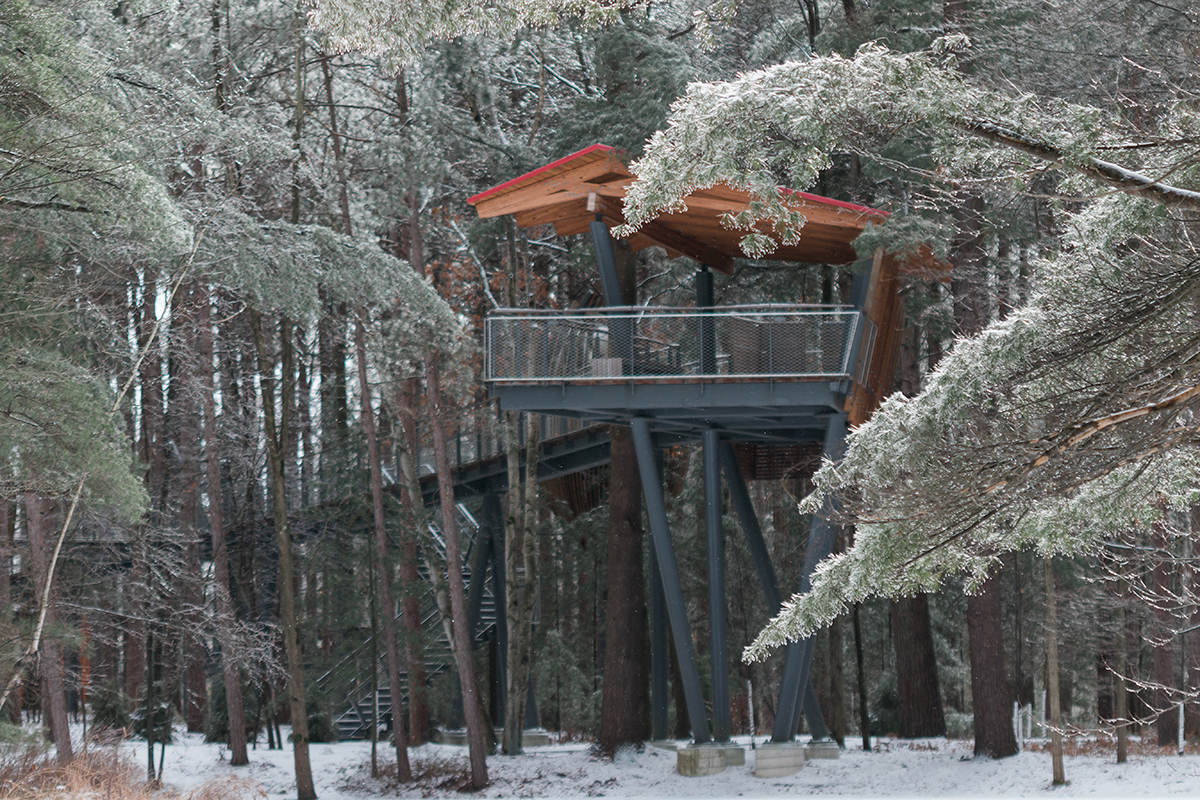WRITER | SARAH SPOHN
PHOTO | SARAH SPOHN
Julie Hall sees value in everything. When others might discard a weed, Hall uses the scrapped plants for their food or medicinal properties. She gives abandoned animals left for dead a second chance – a second life entirely. Kei Ju Farm and Rescue Sanctuary is a family-owned farm offering refuge to goats, chickens, alpacas, donkeys, horses, peacocks, pigs, and more on 11 acres near Petoskey.
The farm, aptly named after father/daughter co-owners Keith and Julie Hall, is open May through October from sunrise to sundown, rain or shine. Visits are free, but this 501(c)(3) nonprofit welcomes donations for guided farm tours. The farm area dates back to the late 1800s when it was attached to the historic Hiawatha Hotel. Hall has been on the land for the last 25 years.
Three acres of the property are used for rescued animals, orchards, a pond, plants, flowers, a chapel, walking trails, picnic areas, rustic site accommodations, and a pet cemetery. On a typical visit to the farm, you might meet Nigerian Dwarf goats Rolo, Liam, and Charlie Christmas or Huacaya alpacas, a Mangalica pig named Coco Chanel, emus, peacocks, Heritage chickens, prairie dogs, rabbits, ducks, horses, and mini donkeys. While some animals were added for educational purposes, others were dropped off by concerned citizens, former owners, and simply rescuers who happened to be in the right place at the right time.
For Hall, taking in and rehabilitating animals is important, but providing them with a loving home is her calling. “I’ve been a farmer all my life,” she said. “I’m from Owosso, and I went to Michigan State University. I started in vet school, but I didn’t finish. I wish I did.”
While other life plans led her away from finishing her degree, those farm roots never left her – even tending to the animals while she was diagnosed with stage four non-Hodgkin’s lymphoma at 27 years old. Hall even continued rehabilitating and caring for injured, malnourished, and diseased animals when she had a broken foot and a broken collarbone.
Some of the farm residents can be nursed back to health and released into the wild. Volunteers adopt others, and the rest remain protected and well-loved on the Kei Ju Farm, their “forever home.” One resident, a bird named Cher, came to the farm with her feet stuck in cement. “We’ve peeled them the best we can,” Julie said. “She seems happy. She loves her food. Why put her down? Let her live a good life.”
Living the good life is precisely what an estimated 200 fowl and 100 mammals, all described by farm helpers as “cuddle bugs,” do at Kei Ju Farm. Animals frequently arrive with a grim prognosis but live much longer than initially expected. “Their lives are so much better when they get the food and nutrition needed… and the love,” Hall said.
Some of the farm’s horses came in desperate condition, dehydrated and with protruding ribs. One was a retired racehorse. The first step in the rescue process is a visit to the local vet and a two-week quarantine period to ensure no disease or illness that might affect the rest of the farm. Plans for dietary restrictions and feed schedules are drawn up for volunteers to follow. On any given day, the number of volunteers ranges from zero to ten helpers.
Children often visit on field trips, educational workshops, or are dropped off by their parents to volunteer for a few hours. Ideally, the Halls’ plans for the future include more land and a potential kid’s camp, featuring hands-on activities while campers stay on the grounds.
In fact, the farm isn’t just a place for the health and well-being of resident animals; it’s also a place of healing for staff and volunteers. “The purpose (of the farm) in my mind’s eye, would be joy,” Hall said. “To give joy and peace. A lot of people, after they walk here, they feel that.”
Betsy Garber, a former nurse and current volunteer who is an artist, gardener, and jack of all trades, describes the farm as an oasis. “It’s almost reverent here,” she said. “When I first found it, I said, ‘Oh my gosh, I found heaven in Petoskey.’”
Anyone is welcome to volunteer at the farm and stop by or contact Hall via the Kei Ju Farm Facebook page. Donations via Paypal and Venmo are accepted. The 501(c)(3) also appreciates Tractor Supply gift cards to purchase supplies.
Kei Ju Farm and Rescue
4128 Hiawatha Trail, Petoskey 49770
(231) 838-6057 / Keijufarms.com


